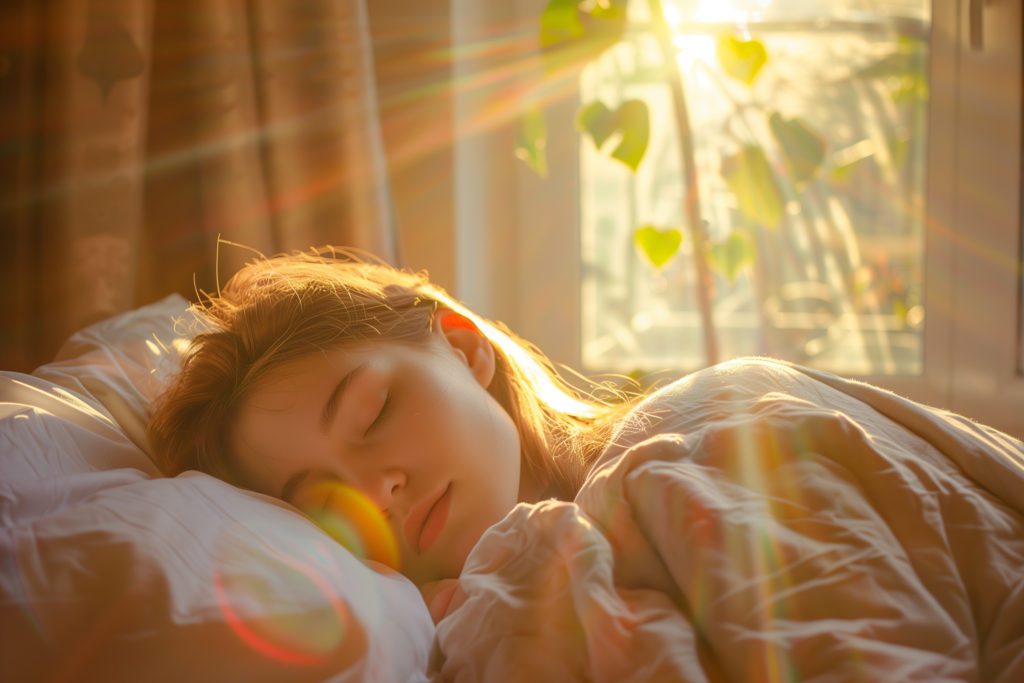
Exploring Hypersomnia: Excessive Sleepiness and Its Causes
Curious about hypersomnia? Read on to learn about its most common causes, from lifestyle factors to other health conditions and sleep disorders.

How often do you feel like you’re barely making it through the day, excessively sleepy, and unable to function like you want to? If this happens to you regularly, then you might have a sleep disorder called hypersomnia. Hypersomnia is best defined as the state of excessive sleepiness, which can cause decreased functioning and poor performance in your daily life (Source: PubMed). It’s a complex condition and one that can make every day harder, but by understanding more about it, you can tackle this and get back to better sleep.
In this article, we’ll explore what hypersomnia is, including its most common symptoms. We’ll also discuss its causes and what experts believe leads to this sleep disorder. We’ll even look at some treatment options so you understand what is available and when you should go to see a medical professional for further guidance. Let’s first discuss the various symptoms of this unique condition.
Understanding Hypersomnia: Common Symptoms of the Disorder
Today, a reported 4% to 6% of people are affected by hypersomnia and present similar symptoms of this sleep disorder. The most apparent complaint, as you might have guessed, is their consistent complaint of excessive sleepiness during the day, something that continues to impact them nearly every single day. Additionally, they may also complain about poor performance—both mentally and physically—and how this affects their daily work or school lives.
Many of the patients who struggle with hypersomnia also share symptoms with depressive disorder. Some reports say that up to 15% to 37% of all individuals who have hypersomnia also present depressive symptoms, leading many to think that these two conditions might be related, or rather that they have a similar impact on the individual (Source: PubMed).
Additionally, another prominent symptom is prolonged nighttime sleep, as those who struggle with hypersomnia are sleepy enough to sometimes sleep more than healthy individuals.
There are several causes of hypersomnia, including sleep apnea, depression, chronic stress, and more, which is what we will explore next in great detail.
What Causes Hypersomnia?
From medical conditions to psychological challenges to lifestyle choices, there are many things that cause hypersomnia. The truth is, there is no one-size-fits-all explanation as to why people develop the disorder. Let’s explore each cause and what experts have found as to why these issues can cause excessive sleepiness in adults around the world.
Medical Conditions That Cause Hypersomnia
Sleep Apnea
As you might have guessed, a common medical condition that can lead to hypersomnia is sleep apnea. According to experts, the reason that this is the case is because sleep apnea can create sleep deprivation over time and even sleep fragmentation, leading to challenges, even if people are using CPAP machines to try and resolve their sleep concerns. Unfortunately, those with sleep apnea who develop hypersomnia are younger, have mood disorders, and report even more fatigue compared to others.
Narcolepsy
As one of the rarest neurological disorders, narcolepsy only affects 0.026% of the general population, but it can lead to hypersomnia. Because of the way that this sleep disorder impacts sleep, it can lead to more sleepiness during the day, fragmented or poor quality sleep, and continued challenges, like hallucinations and more (Source: PubMed). It makes sense why hypersomnia is possible for those with narcolepsy, and unfortunately, there’s no cure for this condition.
Limb Movement Disorders
Conditions like restless leg syndrome are also connected to hypersomnia because of the fact that it disrupts your sleep overnight. These repetitive movements can lead you to feel more exhausted over time, giving you that feeling of exhaustion that might turn into hypersomnia after a long period of time. While this is mild compared to other sleep disorders, it still demonstrates how poor sleep leads to hypersomnia and its symptoms.
The Impact of Depression, Anxiety, and Stress on Hypersomnia
While some might think that depression, anxiety, and stress do not play as much of a role in the development of hypersomnia, they might have some influence. Experts have not conclusively proven that mood disorders lead to hypersomnia, but patients do report that their subjective sleep quality is worse with mood disorders, and they have been associated with conditions like narcolepsy, too.
Lifestyle Factors and Medications
For those who lead a largely sedentary lifestyle, this could contribute to your feelings of excessive daytime sleepiness. Additionally, alcohol can also hinder your sleep, as chronic alcoholics have shown that they have less REM sleep and poor sleep quality. However, there are also medications that you could be taking that can exacerbate your potential development of hypersomnia. For example, hypnotics and antidepressants have been shown to disrupt sleep, potentially leading to health challenges and the development of hypersomnia because of sleep disruptions and fragmentation.
Other Factors That Can Cause Hypersomnia
Even with all of the causes mentioned above, others are still being studied today. From genetic factors to brain injuries to degenerative diseases, researchers are still learning more about how these factors could lead to hypersomnia. Some studies have already shown that conditions like Alzheimer’s and Parkinson’s diseases can provoke hypersomnia (Source: PubMed). In the future, more studies will likely shed light on how these factors play even more of a role in the development of hypersomnia.
Take Steps to Alleviate Your Hypersomnia Symptoms
While there are so many causes of hypersomnia, there are also so many ways you can help yourself overcome this condition. From lifestyle adjustments like the ones we have described to therapeutic approaches and medications that a medical professional can explore with you, you have plenty of choices; it all depends on what best suits your symptoms and current health.
We hope this article sheds some light on the topic and helps you understand the causes of hypersomnia. With these insights, you’ll have a greater understanding of this sleep disorder, how to overcome it, and how to continue encouraging optimal rest every night!

Written by
Marie Soukup
Marie Soukup is a seasoned copywriter, editor, and Integrative Nutrition Health Coach with a certificate from the Institute of Integrative Nutrition (IIN). With years of experience working with brands across diverse industries, Marie is passionate about holistic health and crafting compelling content.
Download Pillow
Get help
Press & News
Legal
Connect
X (Twitter)
Company
Copyright © Neybox Digital Ltd.



